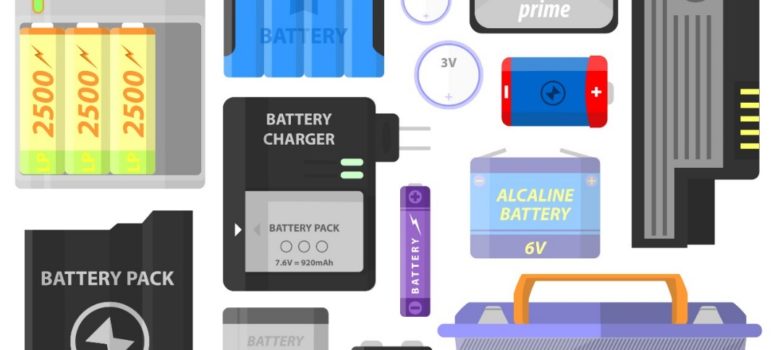
If you’re producing more solar power than you’re using in your home, then the excess will be sent to the National Grid. In the evenings, when the sun’s not shining, you’ll effectively be buying back the energy you sold (via the Feed in Tariff) to the Grid earlier in the day. This obviously doesn’t make much sense. You’re either producing too much electricity, or not enough. Home batteries, such as the Powervault and Tesla’s Powerwall, can help balance this gap in supply and demand.
These don’t come cheap, however, and there are a lot of things to think about before committing. We have written about this before. Here, we’ll talk you through how to choose the right battery for you.
Usable capacity of a battery
A battery’s capacity is the amount of energy (in kWh) that it can store. This is not the same as the advertised ‘total capacity’, as a battery should never be discharged completely… For instance, the Tesla Powerwall actually has a 14kWh battery, but it is sold as 13.5kWh because that is its usable capacity. It’s important that a battery never drains fully, to prevent damage.
Power output of a battery
The power output is the amount of energy you can draw from the battery. This is really important, and not the same as the capacity. The capacity is how much it can hold, whereas the power output is how much you can take out of it at any one time. If your battery has a large capacity, but the rate at which you can use the stored energy is low, it may not be powerful enough to run your appliances from. You should make sure the power output is over 2.6kW, or there’s not much point having a battery at all!
Cost of a battery
As well as the initial cost of the battery, you’ll need to consider installation costs, and the potential savings you could make on your energy bills. Is free energy produced by your solar panels already making a dent in your bills? If not, your system’s probably not big enough to make a battery worthwhile, because there’ll be no excess to store.
Another question you should ask yourself is, are you planning to stay in your home long enough for the battery to pay back? They usually cost at least £2000, plus installation, and you can’t take your PV system with you if you move – so you’ll want to at least have made your money back on the installation costs in savings to your bills, before you move somewhere else.
A home battery system is always going to be a long-term investment, so buy a good quality one that will last, even though it will cost you more. Anything else is a false economy! Add the price quoted by your installer and divide it by the usable storage capacity to work out the best value per usable unit of storage capacity.
Lifespan of a battery
The lifespan of a battery is really important, because there’s no point shelling out on a battery if its performance is going to dip significantly after a few months or years. Some warranties are offered in cycles (1 cycle – 1 complete discharge and full recharge), and others in years. It’s normally recommended that you look for one over 5000 cycles or at least 10 years.
Chemistry of the battery
There are several different types of battery on the market at the moment, but the most common are lithium ion and lead acid. Lithium ion batteries are generally considered to be the best option. This is because they are considerably more efficient than lead acid batteries, as well as being only one third of the weight, having a longer cycle life, and being cleaner and safer for the environment. Lithium ion batteries have a higher upfront cost than lead acid batteries, but their lifespan and performance normally means they pay back in the long run.
Grid charging a battery
To maximise savings, you should think about getting a model that will allow you to charge your battery from the Grid, as well as from solar panels. Time of use tariffs are expected to become widely available soon, and these mean you could draw electricity at off-peak prices (as low as 4p per unit) and store it in your battery to use later. This could potentially mean big savings if you need to import less electricity at normal/higher rates.
Another thing expected to be introduced before too long is the option of owners of home battery systems helping to manage energy supply and demand in the UK. The idea is that if your battery system is grid-tied, the National Grid could call on it at times of high demand, when the normal sources are not producing enough energy to meet demand. If they opt in, domestic battery owners could be paid (kind of like the Feed-in Tariff) to give remote access to some of their battery charge at these times.
There are a few things to consider here; the government payments would have to be enough to make giving away some of your power worthwhile, rather than using it yourself – so you’d definitely have to take an interest in the costings and running of your system. You would also need to have a large enough battery and solar PV system to have spare energy to offer.
Other
A few extra questions to think about:
- Do you have somewhere suitable to put a home battery system?
- If it’s important for you to be able to get power from your battery during a power cut, check that your model is capable of this – not all of them are!
- Get an accredited installer! Do your research and make sure they’re an expert.
Should I buy a battery now?
If you’ve thought about all the points above, and have the budget for it, then why not? It is predicted that within the next few years, batteries will be incorporated into solar PV systems as standard. As energy prices continue to rise, more and more people are choosing to increase their independence. Batteries are now dropping in price due to mass production, so if you can’t afford one yet, you might well be able to in the next couple of years.
Installing battery storage
Interested in having a battery storage system installed in your home? We have scoured the country for the best tradespeople, so that we can make sure we only recommend those we really trust.
If you would like us to find you a local installer to help install a battery storage system in your home, just fill in the form below and we will be in touch shortly!
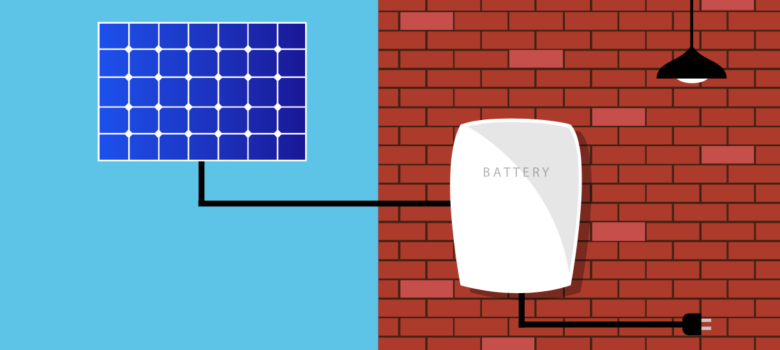



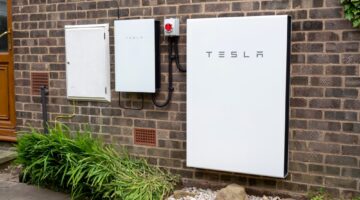
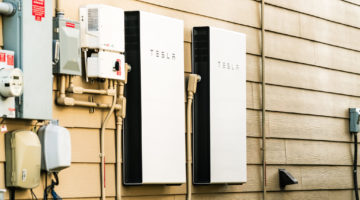

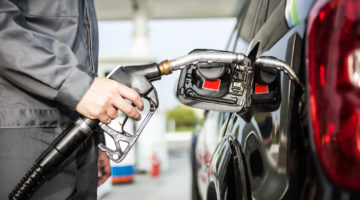





This is a really great summary on home battery storage and very helpful. Thanks for sharing!
Thanks for this. I actually need some help choosing my home battery since I think we use more electricity than most. We have an 8kW solar system on our roof and this powers (along with the grid) a ground source heat pump. I would like to install a battery though to ensure that we don’t export any electricity back to the grid. I guess I am looking for something far more substantial than the 14kWh of the Tesla powerwall. Can you connect batteries together, obviously this would be a quick and easy way to increase capacity. Also what happens when the batteries have completed their recommended charge / discharge cycles? Are the batteries worthless or can they be ‘recycled’ by the battery manufacturers? Reason being i don’t want to fork out for 4 powerwall home batteries for instance and then have to replace them in 5 years with no financial assistance towards them? Thoughts would be greatly appreciated.
I have had a 4 kW PV system for nearly 10 years. It produces about 4000 kWh per year. I receive payment for all the kWh produced under the FIT scheme and pay for all the electricity that I use from the grid. We try to use power hungry equipment such as washing machines during the time when the sun is shining. The maximum output of my system on a sunny day is 25 kWh or roughly two Tesla Powerwalls worth. Storing only one day’s worth of power will not prevent all exports to the grid.
Our total electricity bill is £34/month = £410 per year, to install two Powerwalls could cost around £15000 so if we did that and used zero electricity from the grid (that will never happen in winter) it would take at least 37 years to recoup our investment. I have no plans to install battery storage.
Hi,
Your calculations don’t take any account of future inflation on energy costs. I have a similar set up but my power bill bill is,£65 a month, I was thinking of a Battery 🔋.
Very, very helpful. Thanks for making everything so easy to understand! Love it.
why can you not take your solar system with you ?
Hi Carl,
It is technically possible, but we’ve written an article you can find here about why it’s not a good idea: https://www.thegreenage.co.uk/can-take-solar-pv-panels-move/
Thanks,
Harriet
hi i’m thinking of just getting a battery no solar panels and topping them up at night as it’s very much cheaper with my supplier..
so in effect it would be something like 20p per 8kw so it would pay for itself in just over a yr ?? problem is it’s just a 3 hr window at that price can a 8-10kw battery charge that fast ?